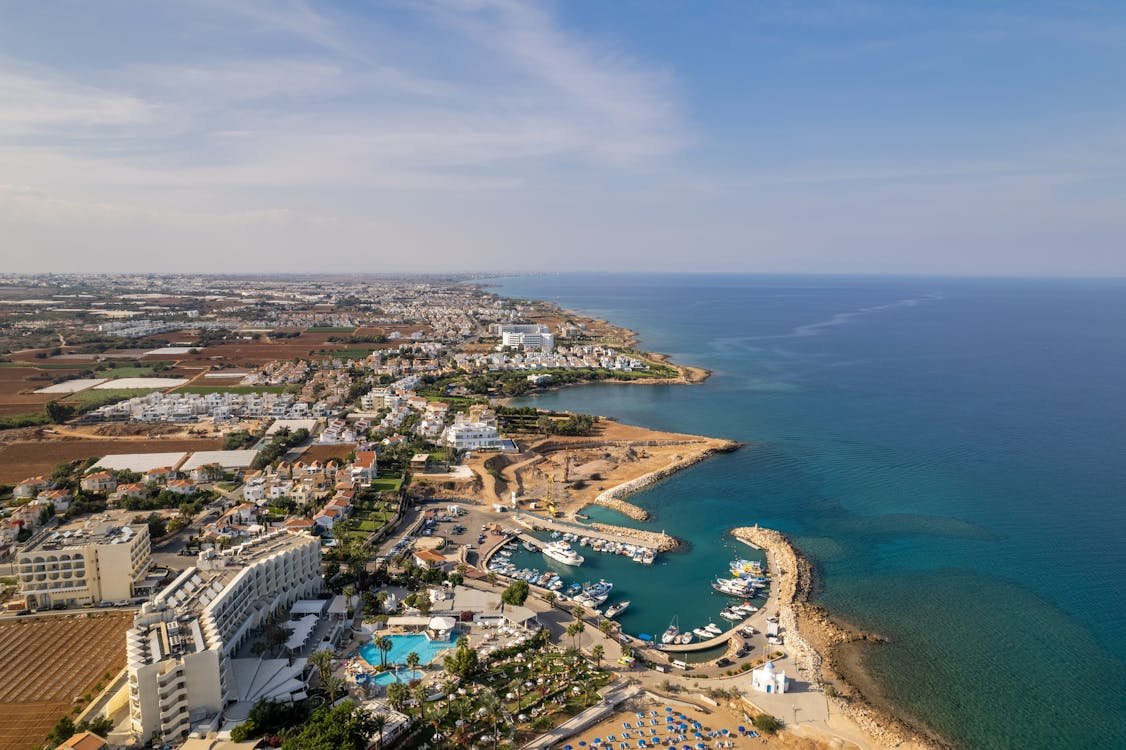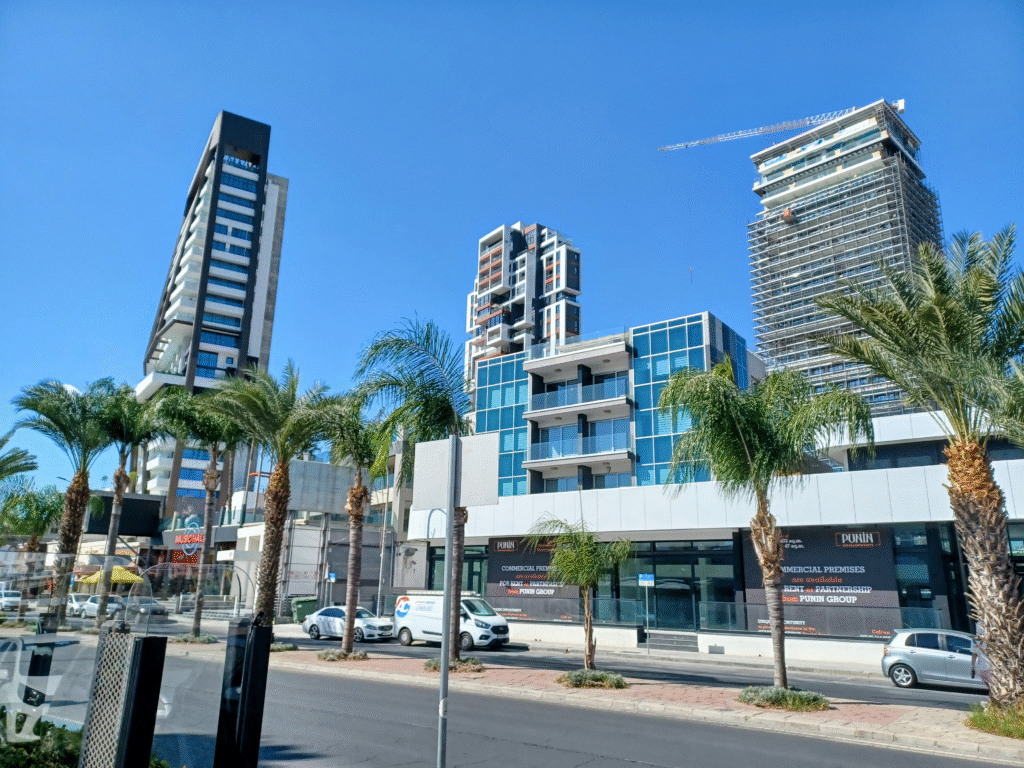Now Reading: Cyprus Business Now: 5 Positive Changes Driving Tourism Growth
-
01
Cyprus Business Now: 5 Positive Changes Driving Tourism Growth
Cyprus Business Now: 5 Positive Changes Driving Tourism Growth

Table of Contents
Cyprus Business Now is a phrase capturing the fast-evolving economic landscape of one of the Mediterranean’s most strategically located economies. From growing Eurobank investments to tourism revival and a crackdown on illicit trade, Cyprus is seeing significant developments in 2025 that are worth watching. The sectors seeing momentum—hospitality, real estate, finance, and trade—are reshaping the island’s commercial future.
Here’s a breakdown of the five biggest developments transforming the business climate in Cyprus right now.
1. Eurobank Expands its Footprint in Cyprus

Eurobank has taken another major step in the Cypriot financial sector by consolidating its local operations and increasing its stake in key subsidiaries. Its growth strategy includes capitalizing on Cyprus’s stable banking regulations and its position as a gateway to European and Middle Eastern markets.
In Q2 2025, Eurobank completed a new acquisition of minority shares in Hellenic Bank, making it one of the most influential financial institutions in the country. This move aligns with its broader ambition to become a regional banking powerhouse.
This expansion is a vote of confidence in Cyprus’s economy and is expected to bring more competitive banking services, enhanced digital offerings, and support for SMEs, especially in tourism and real estate development.
2. Tourism Booms Again—And It’s Not Just Seasonal
Tourism is no longer just a summer business in Cyprus. Thanks to successful branding campaigns, better air connectivity, and renewed interest from the Gulf and Europe, Cyprus’s tourism sector has rebounded strongly after past pandemic-related setbacks.
According to the Deputy Ministry of Tourism, Cyprus welcomed over 4.1 million visitors in the past 12 months—a 20% increase from the previous year. What’s more impressive is that shoulder-season tourism (travel in spring and autumn) is up by 35%, a trend supported by luxury hospitality investments and wellness tourism growth.
Resort developers and boutique hotel chains are pouring money into upgrades, and this is positively impacting employment, local retail, and rural destinations.
3. Hospitality Industry Evolves with Tech and Sustainability
One of the most dynamic sectors in Cyprus Business Now is the hospitality industry. The new wave of hospitality businesses is increasingly focused on smart operations and environmental sustainability.
Major hotel chains are now using AI-driven booking engines, automated guest management systems, and solar-powered infrastructure. Several 5-star resorts in Limassol and Ayia Napa are even moving toward net-zero operations by 2027.
This shift is not just about image—it is a response to the changing preferences of younger travelers who value tech-enabled convenience and eco-conscious brands. This change in consumer behavior is making the hospitality sector more resilient and globally competitive.
4. Illicit Trade Faces Government Crackdown
Despite the positive momentum, Cyprus Business Now is also shaped by some pressing challenges. One of the most significant is illicit trade, especially in tobacco, fuel, and counterfeit goods.
The Ministry of Finance and Customs Authority have initiated a nationwide crackdown. In the last six months alone, over €12 million worth of black-market goods have been confiscated. Increased port inspections and digital customs tracking have played a vital role in this.
While this indicates a serious issue in the underground economy, the decisive action is restoring confidence among legitimate businesses, particularly importers and retailers who face unfair competition.
This government initiative is also supported by EU programs and has led to enhanced cooperation with INTERPOL and neighboring countries.
5. Real Estate Market Heats Up With Foreign Investment
The real estate sector in Cyprus is experiencing a renewed wave of foreign investment. Fueled by the country’s Permanent Residency Programme and lower tax rates compared to other EU countries, high-net-worth individuals and international developers are buying up properties.
In 2025, property sales to foreigners increased by 18%, particularly in Nicosia, Paphos, and Limassol. Luxury apartments, coastal villas, and commercial hubs are attracting buyers from the Middle East, Russia, and South Asia.
At the same time, the government is pushing for affordable housing schemes to address rising prices for locals. This two-sided approach is meant to ensure that the real estate boom is inclusive and long-lasting.
Moreover, Cyprus is working on its Smart Cities initiative, which integrates real estate with public tech infrastructure to attract long-term investors in commercial zones and logistics parks.
Why It All Matters: The Future of Cyprus Business Now

“Cyprus Business Now” is not just a catchphrase—it’s a reflection of a country that is actively reinventing its economy. From better banking and booming tourism to cleaner governance and modernized real estate, Cyprus is preparing to play a more significant role in the regional economy.
The business environment is improving, and this is creating more opportunities for local entrepreneurs, foreign investors, and professionals across all sectors.
If the current momentum continues, Cyprus could become one of the top emerging business hubs in Europe by the end of the decade. Its unique position, investor-friendly policies, and strategic economic reforms offer a promising future.
Conclusion
Cyprus Business Now is seeing a dynamic shift. The blend of positive investment trends and strict policy reforms is redefining how the island conducts business. With Eurobank boosting financial confidence, the tourism and hospitality sectors riding a growth wave, and real estate attracting billions in investment—alongside a strong stand against illicit trade—Cyprus is positioning itself as a modern, trustworthy, and diversified economy.
Investors, analysts, and entrepreneurs should keep their eyes on Cyprus—not just for its beaches, but for its booming boardrooms.
Also Read – Kim Soo-hyun Faces ₹100 Cr Property Blow in Lawsuit






















